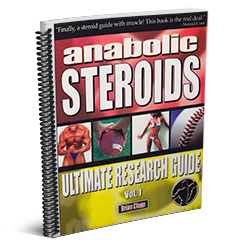Im lookin for a safe, effective natural anti-inflammotory that wont affect muscle gains like nsaid's. Can anyone recommend any that they have used and worked. Thanks

Im lookin for a safe, effective natural anti-inflammotory that wont affect muscle gains like nsaid's. Can anyone recommend any that they have used and worked. Thanks
CoQ10 and Vitamin E
http://nutraingredients.com/news/ng....582&n=dh252&c=
How about MSM

The following are some of the most commonly used natural anti-inflammatory:
* Boswellia Serrata Resin (Frankincense) for its antiinflammatory, antiarthritic, and analgesic properties;
* Curcumin (Turmeric) as an anti-inflammatory agent, for treatment for digestive disorders, and to enhance wound healing agent in Indian Ayurvedic medicine;
* Fish Oil (*****-3 EFA) for the treatment of muscular, skeletal, and discogenic diseases;
* Green Tea for cardiovascular and cancer preventative characteristics due to its antioxidant properties;
* Pycnogenol (Maritime Pine Bark) for wound healing, treating scurvy, healing of ulcers, and reducing vascular inflammation since the time Hippocrates;
* Uncaria Tomentosa (Cat's Claw) for treating arthritis, bursitis, and intestinal disorders;
* Capsaicin (Chili Pepper) as an anti-inflammatory but can cause a burning sensation when it comes in contact with skin or the digestive tract;
* White Willow Bark, one of the oldest herbal remedies for pain and inflammation.
Other herbs such as rosemary and ginger have also been shown to have natural anti-inflammatory qualities. Similarly MSM, sulfur derivative, vitamins A and E can decrease the pain and inflammation in arthritis sufferers.
You could also check out Bee Venom Therapy. I remember seeing something on the news about an 80 year old woman who got stung numerous times. She almost died from the experience. After she recovered she noticed that her arthritis had all but disappeared. Side effect of the bee venom no doubt.
Thanks for the answers. Im spoilt for choice now lol.
Would you say that any foods are linked to inflammation or can aggravate inflammation.

Pro-inflammatory foods will increase inflammation, increase your pain from the inflammation and may also raise your risk for chronic disease. Loading up on junk foods, high-fat meats, sugar and fast foods will increase inflammation in your body. This is partially due to the unhealthy fats used in preparing and processing these foods, especially trans fats and saturated fats. Processed meats such as lunch meats, hot dogs and sausages contain chemicals such as nitrites that are associated with increased inflammation and chronic disease.
Saturated fats are also found in meats, dairy products and eggs. While all of these foods are important source of minerals and vitamins, you don't need the extra saturated fat. These foods also also contain fatty acids called arachidonic acid. While some arachidonic acid is essential for your health, too much arachidonic acid in the diet may make your inflammation worse. Be sure to choose low fat milk and cheese and lean cuts of meat, which will not promote inflammation.
Diets high in sugar have also been associated with inflammation, obesity and chronic disease such as diabetes. Eliminate high sugar foods such as sodas, soft drinks, pastries, presweetened cereals and candy.
Another possible source of irritation comes from the nightshade family of plants. Whole fruits and vegetables are important to eat for their vitamins, minerals, and natural antioxidants, however some vegetables like potatoes, tomatoes, and eggplant may actually make pain from inflammation worse. These vegetables are part of the nightshade family of plants and contain a chemical alkaloid called solanine. Solanine can trigger pain in some people. While there isn't any formal research findings that back the claim about nightshade plants, you can avoid them for a few weeks to see if your pain and symptoms of inflammation improve.
This might help, I just ran across it
http://nutrition.about.com/od/dietsf...inflamfood.htm
There are currently 1 users browsing this thread. (0 members and 1 guests)

396 Pages of Anabolic Steroid resources, techniques and facts. Discover the best types of Steroids to use to reach specific goals and outcomes.